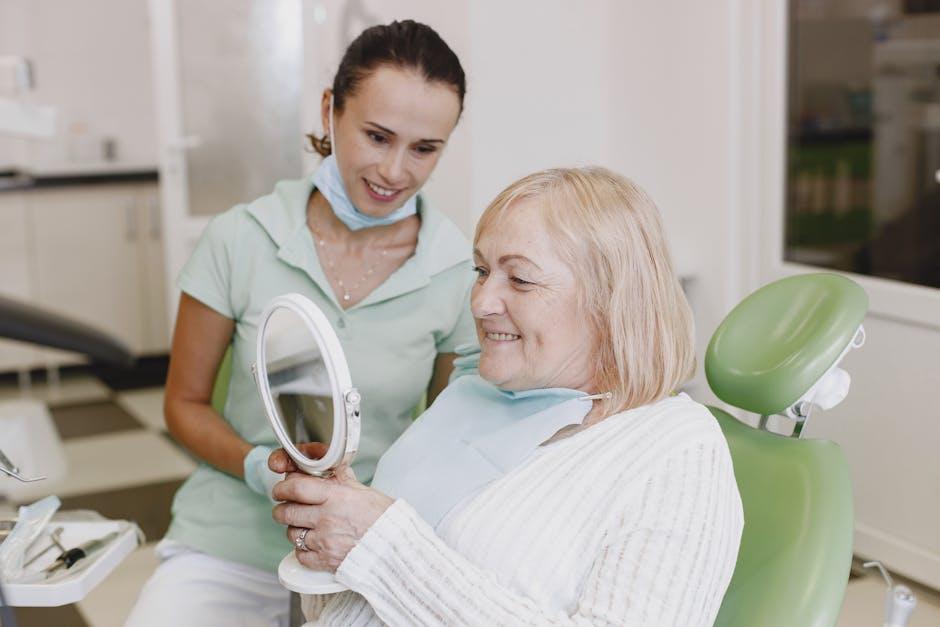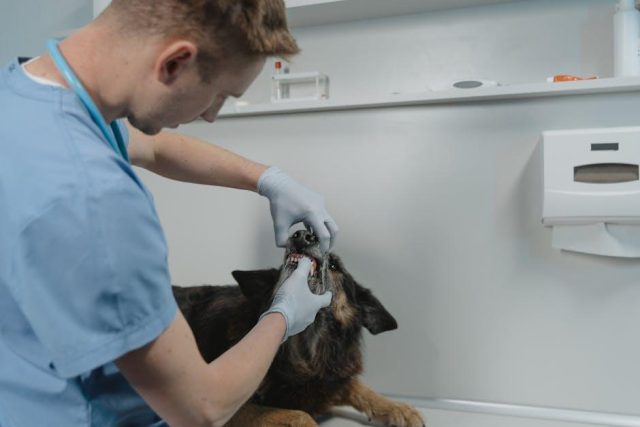As the years gracefully etch silver into the fur of our beloved senior pets, their wisdom and companionship deepen, filling our lives with a unique kind of joy and serenity. Yet, with this passage of time comes the responsibility to care for their aging bodies, ensuring they remain as comfortable and healthy as possible. Among the many facets of senior pet care, dental health often stands as a silent guardian of their overall well-being, influencing not just their ability to eat and play, but also their longevity and happiness. Imagine, then, embarking on a journey to unlock the secrets of maintaining those loyal, loving smiles that have brightened your days for so long. This guide is here to illuminate the path, offering heartfelt advice and practical tips on how to manage your senior pet’s dental health in their golden years. Let’s step into this world of care and compassion together, ensuring our furry friends continue to thrive with every wag, purr, and nuzzle.
Understanding the Unique Dental Needs of Aging Pets
As our furry companions age, their dental care needs evolve, requiring special attention to maintain their overall health and well-being. Senior pets often face unique challenges such as increased risk of gum disease, tooth decay, and oral infections. To address these concerns effectively, it’s essential to adopt a comprehensive dental care routine tailored to their specific needs.
- Regular Veterinary Check-ups: Scheduling frequent dental exams with your vet can help identify and treat issues early, preventing more severe problems down the line.
- Proper Diet: Incorporate foods that promote dental health, such as kibble designed to reduce plaque buildup or dental chews that help clean teeth.
- Daily Brushing: Brushing your pet’s teeth daily with a pet-safe toothpaste can significantly reduce plaque and tartar accumulation.
- Monitor for Signs of Dental Issues: Keep an eye out for symptoms like bad breath, difficulty eating, or bleeding gums, and consult your vet if you notice any of these signs.
Implementing these strategies can make a significant difference in your senior pet’s dental health, ensuring they remain comfortable and happy in their golden years.
Daily Dental Care: Small Steps for Big Smiles
As our beloved pets age, their dental health becomes more crucial than ever. Regular dental check-ups are vital to prevent the onset of periodontal disease, which can lead to severe health issues. Make it a habit to schedule annual or bi-annual vet visits specifically for dental cleanings. During these visits, the vet can spot potential problems early and offer professional cleanings that can make a world of difference.
In addition to professional care, there are several daily habits you can adopt to maintain your senior pet’s dental health:
- Brush their teeth daily with pet-safe toothpaste to reduce plaque buildup.
- Provide dental chews and toys designed to clean teeth and massage gums.
- Incorporate dental-friendly foods and treats that promote oral health.
- Keep an eye out for signs of dental issues like bad breath, difficulty eating, or swollen gums.
By taking these small, consistent steps, you can help ensure your senior pet enjoys a healthy mouth and a happier life in their golden years.

Nutritional Tips to Support Oral Health in Senior Pets
Ensuring your senior pet maintains optimal oral health can significantly enhance their overall well-being. Nutritional adjustments play a crucial role in this. Integrate a mix of the following foods and supplements into their diet:
- Raw Carrots: Chewing on these helps clean teeth and gums, reducing plaque buildup.
- Dental Chews: Specially formulated to support dental health, these can help keep teeth strong and gums healthy.
- Omega-3 Fatty Acids: Found in fish oil, these can reduce inflammation and support gum health.
- Probiotics: These beneficial bacteria can improve digestion and reduce bad breath by balancing oral microbiota.
Incorporate these elements gradually, observing how your pet responds. Consult your veterinarian for personalized recommendations to ensure your furry friend’s diet supports their dental health effectively.

Recognizing and Addressing Common Dental Issues in Older Pets
As our beloved pets age, they can become more susceptible to a variety of dental issues. Recognizing these problems early can make a world of difference in their comfort and overall health. Common dental issues in older pets include:
- Periodontal disease: This is the most prevalent dental issue in senior pets, often resulting in inflamed gums, bad breath, and even tooth loss.
- Tooth decay: Aging teeth can become brittle and more prone to cavities, which can cause significant discomfort and infection if left untreated.
- Oral tumors: While not as common, the risk of oral tumors increases with age and can be particularly concerning if not identified early.
Addressing these issues promptly involves regular veterinary check-ups, professional cleanings, and a diligent home care routine. Incorporate daily brushing, provide dental-friendly toys and treats, and ensure a balanced diet to help maintain your senior pet’s dental health. Remember, a healthy mouth contributes to a happy and active life for your furry friend.


































